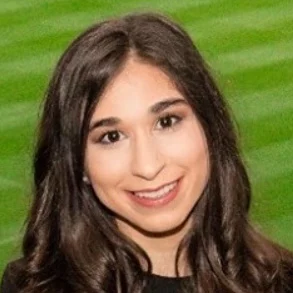The information on this website should not be considered medical advice.
This website contains affiliate links, and we may be compensated for referrals.
The journey toward becoming a doctor is long and grueling.
It comes with a multitude of personal sacrifices to reach our goal. To reach the end, we must pass several examinations that put our mental fortitude to its limits. For the average student without learning disabilities, these exams are incredibly challenging. For those students with learning disabilities, these exams can seem like an impossible task set up for our failure. However, when given the appropriate accommodations, many of these students can be successful and conquer these challenging examinations. Unfortunately, many students with learning disabilities do not seek out the accommodations they deserve in school and on standardized tests due to rumors they have heard or their school discouraging them from applying. The truth is that there is a lot of misinformation out there regarding the accommodations process on standardized tests. I am here to set the record straight with many of these rumors.
MYTH 1
If you were not diagnosed with ADHD until adulthood, you will never get approved for accommodation = MYTH BUSTED
This is one of the most frequently reported myths I have read about, and it discourages many students from applying for accommodations.
The truth is that applicants who are getting denied and were diagnosed as an adult may not be denied because of their late diagnosis. It could be because they are not providing the committee that grants or denies accommodations with enough “evidence” to support a lifelong learning disability OR adequate reasoning as to why they are requesting accommodations in the first place.
In fact, the AAMC specifically states, “while many diagnoses result in the provision of specific accommodations (e.g., access to medical supplies for an individual with diabetes), diagnosis alone, although required, is often not sufficient for determining the appropriateness of a particular accommodation. Rather, it is the current functional limitation resulting from the impairment that indicates the need for an accommodation.” This is one of the most frequent mistakes I see while working with students on their applications, and it is a component of why many students are denied accommodations.
Anyone can get a doctor to write a letter saying they have a learning disability and need extra time or other accommodations. I believe that these committees make it so difficult for students with learning disabilities to get approved. They want to prevent those without disabilities from abusing the system, and only grant accommodations that they feel are medically necessary. Unfortunately, this makes it difficult for those with a real need for accommodations.
One issue that many students face is that they may not have been diagnosed with learning disabilities until adulthood. As a result, they did not have an official assessment from childhood proving that they have ADHD, another qualifying learning disability, or a history of receiving accommodations in grade school. This makes it challenging for any newly diagnosed student to get approved, but it does not make it impossible.

You may ask why some students with ADHD do not know they have a learning disability until adulthood, but the truth is not so simple. I have worked with many students in this situation, and the reasons why they went undiagnosed vary. One reason may be that they grew up in a household with a stigma against learning disabilities. Unfortunately, many families believe that it is the fault of the student for their academic struggles rather than an underlying problem. As a result, they go undiagnosed until they have autonomy. Another reason is that symptoms can be easily masked in grade school. In grade school, class sizes are smaller, and access to academic support is greater. If a student is struggling to focus in class or having difficulty completing their homework on time, the teacher can re-direct the student or call the student’s parents and let them know. Third, parents may not have the financial resources or education to seek help from a professional. Sometimes it is not until these students begin university or medical school that their learning disabilities truly present themselves. For example, students are now responsible for self-directed learning in university. No more are their parents sitting next to them telling them to do their homework; rather, they are responsible for their own schooling. There is no more assigned homework. Instead, students have to be self-motivated to study each lecture. This can prove to be a major struggle as their inattention and hyperactivity can make it difficult for them to start and maintain focus on a task. These are only some of the many reasons why a student may have gone undiagnosed as a child.
The point is that students with learning disabilities are not always afforded the luxury of early diagnosis. Unfortunately, when they apply for accommodations on standardized tests, they may be unaware of how to present their case.
If you are a student in this situation, I want you to know that you are not a lost cause if you apply for test accommodations on your MCAT or USMLE. Many students are discouraged from applying for accommodations on the USMLE by their school because they were diagnosed as adults and got approved for every accommodation they requested. Each student’s story is unique, and the impact that their disability had on their life and academics is different. From my experience, I can tell you that how you present your case plays a significant role in the outcome of your application.
I think it is also worth mentioning that the reason you may not hear many success stories from students in these situations is that they probably do not publicly promote their success. If someone is denied accommodations, they are more likely to seek out the advice of others in similar situations to help them through their experience. The same principle applies to product reviews. You are more likely to see a negative review than a positive one because people are more emotionally affected by a negative experience than a positive one.
MYTH 2
You need a psychoeducational assessment or neuropsychiatric assessment if you want to apply for accommodations on the MCAT or USMLE. = FACT
A psychoeducational assessment is an assessment performed by a licensed professional to identify a student’s strengths and weaknesses in areas such as reading, writing, mathematics, listening, and memory. A neuropsychiatric assessment has similar components but must be performed by an individual trained in neuropsychiatric tests and takes longer to conduct. These tests look at the brain-behavior relationship and help identify an individual’s strengths and weaknesses in a more in-depth manner. Both types of assessments are accepted by the MCAT and USMLE and are required as a part of their application.
The AAMC provides students with a chart detailing what is required on each application based on the disability with which they are applying for accommodations.
Feel free to use the chart below to guide you.
| Academic Transcripts | Standardized Test Score Reports* | Verification of Previous Accommodation* | Supporting Academic Records | Previous Evaluations | |
|---|---|---|---|---|---|
| Acquired Brain Injury | Strongly Recommended | Strongly Recommended | Required | If Applicable | Required |
| ADHD | Strongly Recommended | Strongly Recommended | Required | Strongly Recommended | Strongly Recommended |
| Learning Disability | Strongly Recommended | Required | Required | Strongly Recommended | Strongly Recommended |
| Physical Disability | If Applicable | If Applicable | Required | If Applicable | If Applicable |
| Psychiatric Disability | Strongly Recommended | If Applicable | Required | Strongly Recommended | Strongly Recommended |
| Sensory Disability | Strongly Recommended | Strongly Recommended | Required | Strongly Recommended | Strongly Recommended |
MYTH 3
Your assessment has to have been conducted within a specified number of years to be accepted as your formal psychoeducational assessment on your application = Inconclusive
My answer to this is based on personal experience.
The AAMC states that for the MCAT, your assessment has to be current (within the last three years). Their reasoning is that they believe that even if a student was diagnosed with a lifelong condition, the way in which it presents and the limitations it may cause the student may change and vary with time and setting. From my experience, this is one of the rules for which the MCAT is particularly strict.
When I applied for accommodations in the mid-2010s, I had three neuropsychiatric assessments. However, my most recent was conducted within the last four years. Despite having had three previous assessments and a letter from my psychiatrist confirming my diagnosis and the accuracy of my three other assessments, the MCAT still required me to get a fourth assessment. If you are a student in a similar situation, I recommend reaching out to the MCAT disabilities department and asking them if there is a way to still apply with your current assessment rather than having to spend thousands of more dollars on a new one.
The USMLE website states that an assessment must have been performed within the last three years; however, based on personal experience, I know that they do make exceptions to this. When I applied in 2020, I submitted letters from my doctor and psychiatrist confirming my four assessments and stating that there is no need for a fifth to be performed. When I emailed the USMLE about their policy, they stated that the 3-year rule may not always be mandatory as it can vary per student and their supporting documentation and situation. In fact, I was approved for accommodations despite my most recent assessment being from 2014. Likewise, when I reapplied in 2022 for new accommodations for my USMLE 2, I submitted similar letters and was once again approved despite the age of my assessments.
Whether their reasoning for accepting my assessments was because I submitted an abundance of documents to support my diagnosis or the fact that I had four assessments, my point stands that the USMLE appears to be more forgiving with the date of the most recent assessment.
MYTH 4
Writing the MCAT or USMLE with testing accommodations will hinder my chances of getting into medical school because it will show up on my application = MYTH BUSTED
It is a common fear of many students with learning disabilities that if they take their exams with accommodations, medical schools and residency programs will know. The good news is that in 2014, the USMLE announced that they no longer report whether or not a student took their exam with accommodations. The same holds true for the MCAT. So if you are a student with disabilities, learning or otherwise, and are interested in applying for accommodations, rest assured that it will not be disclosed to any program or school that you apply to.
Conclusion
As a student with learning disabilities, medical school and pre-med studies are no easy tasks. It is important that we get the accommodations we are entitled to. Part of that is being aware of what is fact and what is fiction when you decide whether or not you will apply for accommodations. If you are applying for the MCAT, you have the luxury of multiple attempts should you choose to try without accommodations for the first attempt. However, all non-voided attempts are documented and listed on your application.
If you are writing the USMLE, you are not afforded the luxury of multiple attempts. If you fail the exam, it will be documented on your transcript. You will have to retake the exam, and that will also be documented. It is for this reason that I leave students who are on the fence about applying for accommodations with the following question: Would you rather take your exam with accommodations and possibly perform better, OR would you rather forgo the accommodations out of fear of being judged and risk a poor performance?
Dr. Lauren Morrison is an internal medicine resident physician who has a passion for disability advocacy.



Facebook Comments